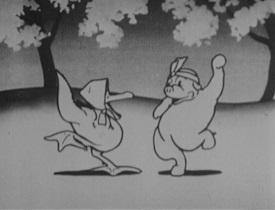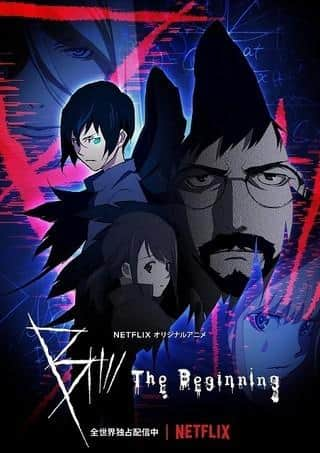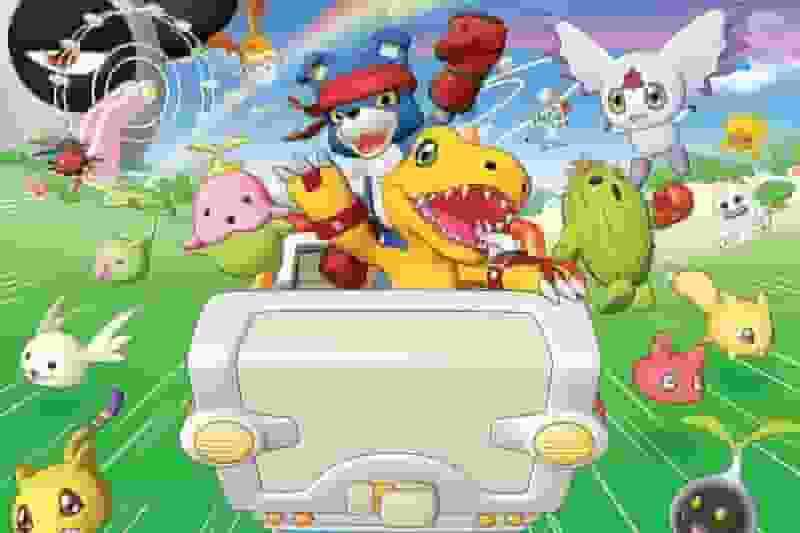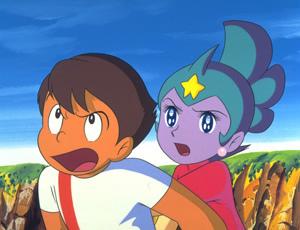The appeal and reviews of the first season of "Ataro the Extraordinary": Rediscovering the good old comedy anime
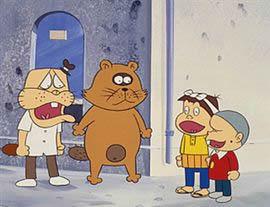
Extraordinary Ataro: Fujio Akatsuka's masterpiece of comedy animeBroadcast from 1969 to 1970, "Ataro the Great" is a comedy anime based on the original work by Fujio Akatsuka, and its unique humor and the charm of its characters captivated many viewers. This anime expanded the world view of the original manga and was developed as a TV anime series for 90 episodes. Here, we will take a deeper look at its appeal and details. ■Overview of the work"Extraordinary Ataro" begins with the death of ×goro, the owner of a downtown greengrocer called "Yao × (Batsu)." As a single parent family, Ataro, the only son, is left all alone in the world, but he works hard to run the store left behind by his father, along with his younger brother Dekohachi, who adores him. Ataro is surrounded by strange characters and animals, making his days one after another quite hectic. In the second half of the series, the main focus is on powerful nonsense comedy episodes featuring supporting characters such as Nyarome. ■Broadcast information"Extra Ataro" was broadcast on NET (now TV Asahi) from April 4, 1969 to December 25, 1970. It consisted of 90 episodes, the first 77 of which were in black and white, and the remaining 13 in color. Each episode was 30 minutes long and entertained the audience. ■Production BackgroundThe original is a comedy manga that Fujio Akatsuka began serializing in rival magazine Weekly Shonen Sunday after the huge success of Tensai Bakabon. Characters from Tensai Bakabon and Osomatsu-kun also appear, and many original anime stories have been created that further enhance the comedy taste of the original manga. Toei Animation (now Toei Animation) was in charge of production up to episode 13, after which Toei and NET co-produced it. ■ Main characters Ataro: A boy with the Edokko temperament who is kind-hearted and helps the weak and defeats the strong. His mother died shortly after his birth, and after his father's death, he took over the greengrocer's shop, Yaoyaku. ■Cast and crewThe cast includes Keiko Yamamoto as Ataro, Midori Kato as Dekotachi, Ichiro Nagai as ×Goro, Koichi Tomita as Butamatsu, Takuzo Kamiyama as Kamisama, Hiroshi Otake as Nyarome, and Joji Yanami as Kokoro's boss. The staff includes Fujio Akatsuka, the original author, Katsuyuki Onuma, Takashi Iijima, and Toru Hara, Masaharu Eto as producer, Masaki Tsuji, Shunichi Yukimuro, and Hiroshi Ozawa as screenwriters, Yasuo Yamaguchi, Isao Takahata, and Nobutaka Nishizawa, Saburo Yokoi, Tadami Shimokawa, and Katsuyoshi Hozumi as art directors, Hiroshi Suzuki, Masaaki Hanai, Yutaka Senkura, and Hitoshi Komura as editors, Hiromi Kanbara, Isao Hatano, Fumio Arakawa, Yukio Ishii, Susumu Konishi, and Kenji Ninomiya as sound engineers, Taku Izumi as music engineer, Toei Chemicals as developer, and NET and Toei Animation as producers. ■ Episodes and stories"Extraordinary Ataro" has 90 episodes, each with its own jokes and storyline. The early episodes focused on Ataro and Dekopachi's struggles and the exploits of ×Gorou as a ghost. In the later episodes, minor characters such as Nyarome and Kokoro's boss took center stage, delivering nonsensical gags. Below are some episodes.
■ Related worksTwo theatrical versions of "Ataro the Extraordinary" were released. "Ataro the Extraordinary" was released on July 20, 1969, and "Ataro the Extraordinary: Nyarome's Lullaby" was released on July 19, 1970. A sequel, "Ataro the Extraordinary" (the second film), was also produced. These films also retain the comedy taste of the original, but develop new stories and characters. ■ Theme songs and musicThe theme songs for "Moeretsu Ataro" are the opening theme "Moeretsu Ataro" and the ending theme "Edokko no Scat". Both songs were written by Kawachi Hiroshi and composed by Izumi Taku, with the opening theme performed by Katsura Kyoko and the ending theme performed by Honey Knights. Also used in the film are "Moeretsu Ondo" and "Nyarome no Uta", which also had lyrics by Kawachi Hiroshi and music composed by Izumi Taku, and were performed by Kato Midori and Honey Knights, and Otake Hiroshi. These songs are important elements in creating the atmosphere of the anime. ■ Evaluation and impact"Extraordinary Ataro" was highly praised as Fujio Akatsuka's comedy anime. In particular, the characters' personalities and the tempo of the comedy left a strong impression on viewers. The change in production from black and white to color also became a hot topic. This work had a major influence on later comedy anime, further increasing the fame of Fujio Akatsuka. ■ Recommendation points"Ataro the Movie" is loved by many fans as a monumental comedy anime. The following points in particular are recommended:
■ Summary"Ataro the Extraordinary" is a comedy anime by Fujio Akatsuka that captivated many viewers with its unique humor and the charm of its characters. The 90 episodes featured a variety of stories, from the family ties and struggles in the early episodes to the nonsensical gags in the latter half. Thanks to the efforts of the cast and staff, the work was highly praised and had a major influence on later comedy anime. The theme song and songs in the story also enhanced the atmosphere of the anime and enriched the viewing experience. "Ataro the Extraordinary" is a monumental comedy anime that will continue to be loved by many fans for a long time to come. |
<<: Dororo and Hyakkimaru: The appeal and reputation of this classic anime
>>: Sanshiro Beni: A look into the appeal of vivid characters and deep story
Recommend
A Japanese story about a boy who draws: A thorough review of moving depictions and character development
"A Japanese Boy Who Draws" - A story of...
The appeal and reviews of "Gurren Lagann Parallel Works 2": A must-see for fans?
"Gurren Lagann Parallel Works 2": The a...
The final scene of League of Legends: Two Cities was finalized six years ago
Rewrites are not uncommon in the world of televis...
Iron Man’s daughter is suspected to be exposed during the reshoot of "Avengers 4"?
I would like to emphasize that this is speculatio...
Two new concept images of the shelved "Alien 5" movie were exposed
Some new concept art for Alien 5 has leaked onlin...
The appeal and evaluation of the Kinnikuman series: Powerful story and character depth
Kinnikuman - Great Space Superhuman Battle! ■ Pub...
The first PV of the Goblin Slayer movie is released and will be released in February next year
Today (September 9), the official brought new new...
The appeal and reviews of "Love, Election and Chocolate": Exploring the depths of a sweet coming-of-age story
Love, Election and Chocolate - Love, Election and...
Game of Thrones Season 8 Final Trailer: A Song of Ice and Fire Ends
The eighth season of HBO's epic fantasy block...
The movie version of "Zhengtu" is now available on Netflix and will be broadcast simultaneously around the world except in mainland China
The movie "Journey" announced that the ...
Blitzway × 5PRO STUDIO Inuyasha 1/6 statue priced at $949
Recently, the well-known Korean collection brand ...
"Outside the Window is a Blue Planet" was approved as China's first real-life movie shot in space
Today (August 16), according to the latest projec...
Liu Cixin: Shanghai Fortress is not that bad, it is also a victim
During the 2019 China Science Fiction Conference,...
The appeal and reviews of Final Fantasy: Unlimited
Final Fantasy: Unlimited - Adventure to another w...
Less is more! Disney CEO admits Star Wars movies are released too frequently
Disney CEO Bob Iger is currently promoting his ne...

